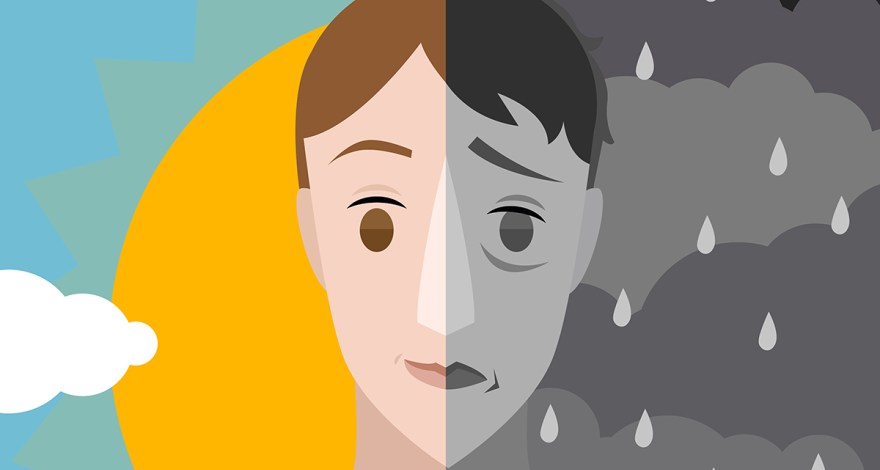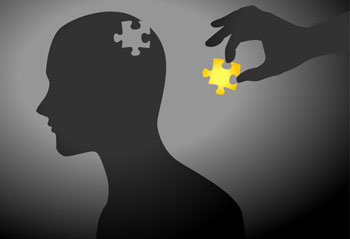Types of Mental Illness

Mental health stands crucial for a person’s adjustment and working in the face of changing dynamics of life’s events. It indicates psychological and emotional vigor of an individual which determine quality of life.
Various factors affecting mental health include ones environment, habits and even genetics.
Since several years mental health has been a burning topic among society and scholars. Various experts studied mental health and proposed different strategies for its maintenance. The common points from their excerpts stress on the following:
. get enough sleep
. eat healthy
. stay positive
. befriend motivated people
. have goals and work towards them
. be physically active
. seek professional help to fix mental health problem when needed
The following article will educate you about the varied conditions that are considered mental illness.
What is mental illness?
Absence of a sound mental well-being can give rise to mental illness. It is an umbrella term that covers innumerable conditions which affect the way one feels and responds.
Statistically, about one in five adults experience at least one mental illness each year. And about one in 25 adults goes through serious mental illness experience each year.
About 300 mental illness have been listed in Diagnostic and Statistical Manual of Mental Disorders (DSM). And some most common of them are discussed below:
Anxiety disorders
Having anxiety or fear is normal and it is witnessed by many at different occasions. But when it gets triggered to unimportant stimulus and results in uncontrollable responses then it is called anxiety disorder.
Anxiety disorders accompany physical reactions such as shortness of breath, shaking body frame and pounding heart. It affects ones concentration, sleep and interferes with daily life activities.
It occurs due to several factors which include: family background, ongoing stress, genetic factors and a traumatic event. Anxiety disorders include panic disorder, social anxiety disorder,generalized anxiety disorder and specific phobias.
Mood disorders

These comprise of constant feeling of sadness or swaying mood from extreme happiness to extreme sadness. The most common mood disorders are bipolar disorder, depression, and cyclothymic disorder.
Psychotic disorders

These mental conditions involve deformed thinking and awareness of the subject, who experiences two most common symptoms:
. Hallucination: to experience the unreal images and sounds such as hearing voices and visualizing a person.
. Delusion: it involves acceptance of a false belief as true.
Schizophrenia is a common example of psychotic disorder where subject is characterized with major symptoms such as delusions, hallucinations and thought disorder. Several factors such as genetic inheritance, chemical imbalance in brain, environment and drugs contribute to the onset of this mental condition.
Eating disorders

A person experiencing eating disorder would exhibit extreme emotions, behaviors and attitude involving weight and food.Two most common eating disorders are:
. Anorexia nervosa: in this condition, subject becomes overtly conscious of its weight gain which makes it go great length to avoid calories and ends up looking dangerously thin.
. Binge eating disorder: under this condition, a person keeps eating food to cope stressful circumstances and emotions.
Impulse control and addiction disorders

People under the influence of this disorder encounters uncontrollable urges to perform acts that are socially unacceptable. These people are generally considered irresponsible and bad in relationships. Common examples of this order are:
. Kleptomania: in this condition, subject suffers an uncontrollable feeling to steal objects.
. Pyromania: subject with the following mental condition feels to set things on fire.
. Compulsive gambling and drug addiction are other types of this disorder.
Personality disorders

People with personality disorder generally faces adjustment issues at their work place, home or school. They land in trouble due to their inflexible and distressing personality traits. Such people possess rigid thinking and behavior that do not fit within the societal norms. Common personality disorders are:
. Antisocial personality disorder: under this condition, person possesses antisocial or criminal set of behavior and mindset.
. Paranoid personality disorder: people suffering with this personality disorder possess odd thinking pattern. Such people often have trust issues and remain skeptical over events and people when there is no reason to be.
Obsessive-compulsive disorder (OCD): people suffering with this disorder always have lingering thoughts or fears called obsessions that trigger them to perform some actions in routine known as compulsions. For example a person obsessed with his house safety would compulsively check the lock of his door.
Post-traumatic stress disorder (PTSD): it is condition where a person is infected with horrifying thoughts and feel emotional numbness post a traumatic event such as sudden death of dear ones, physical and mental assault or sexual abuse.
Major depressive disorder: this is a case of severe sadness or hopelessness that is termed as clinical depression where a person remain in the upsetting state for at least two weeks. Such people often possess esteem issues and become socially withdrawn. They get fed up of life to an extent of contemplating about committing suicide.
Some mental conditions are treatable if given proper medical help timely such as medication, psychiatric counselling, meditation, therapies etc.
References:
https://www.webmd.com/mental-health/mental-health-types-illness#1
https://www.healthdirect.gov.au/types-of-mental-illness
https://www.healthline.com/health/mental-health
https://www.medicalnewstoday.com/articles/36942.php#schizophrenia_causes





